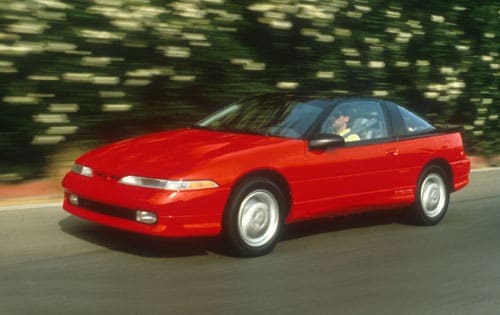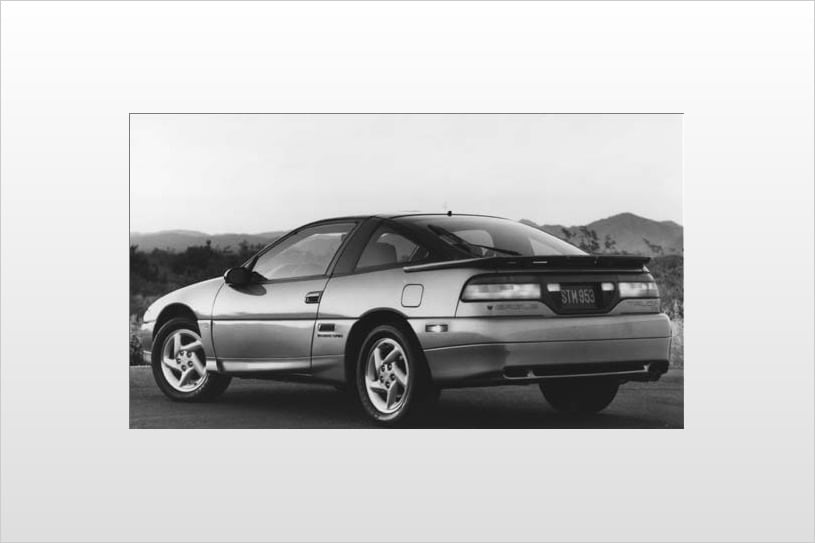Used 1990 Eagle Talon Consumer Reviews
See Edmunds pricing data
Has Your Car's Value Changed?
Used car values are constantly changing. Edmunds lets you track your vehicle's value over time so you can decide when to sell or trade in.

test 8:24 am 10/31
test
test
This has paragraph breaks typed in. This has paragraph breaks typed in. This has paragraph breaks typed in. This has paragraph breaks typed in. I copied and pasted to make it so. I updated 6/7/2019
test
test With Update test Update test for incident
- Safety
- Technology
- Performance
- Value
Test
test
test for update
No optional questions answered on round #1. Answering optional questions on round #2, after verification. update
- Performance
- Interior
test
test2 update
- Performance
test
test update Test Test Test Test ’Twas brillig, and the slithy toves Did gyre and gimble in the wabe: All mimsy were the borogoves, And the mome raths outgrabe. “Beware the Jabberwock, my son! The jaws that bite, the claws that catch! Beware the Jubjub bird, and shun The frumious Bandersnatch!” He took his vorpal sword in hand; Long time the manxome foe he sought— So rested he by the Tumtum tree And stood awhile in thought. And, as in uffish thought he stood, The Jabberwock, with eyes of flame, Came whiffling through the tulgey wood, And burbled as it came! One, two! One, two! And through and through The vorpal blade went snicker-snack! He left it dead, and with its head He went galumphing back. “And hast thou slain the Jabberwock? Come to my arms, my beamish boy! O frabjous day! Callooh! Callay!” He chortled in his joy. ’Twas brillig, and the slithy toves Did gyre and gimble in the wabe: All mimsy were the borogoves, And the mome raths outgrabe. ’Twas brillig, and the slithy toves Did gyre and gimble in the wabe: All mimsy were the borogoves, And the mome raths outgrabe. “Beware the Jabberwock, my son! The jaws that bite, the claws that catch! Beware the Jubjub bird, and shun The frumious Bandersnatch!” He took his vorpal sword in hand; Long time the manxome foe he sought— So rested he by the Tumtum tree And stood awhile in thought. And, as in uffish thought he stood, The Jabberwock, with eyes of flame, Came whiffling through the tulgey wood, And burbled as it came! One, two! One, two! And through and through The vorpal blade went snicker-snack! He left it dead, and with its head He went galumphing back. “And hast thou slain the Jabberwock? Come to my arms, my beamish boy! O frabjous day! Callooh! Callay!” He chortled in his joy. ’Twas brillig, and the slithy toves Did gyre and gimble in the wabe: All mimsy were the borogoves, And the mome raths outgrabe. ’Twas brillig, and the slithy toves Did gyre and gimble in the wabe: All mimsy were the borogoves, And the mome raths outgrabe. “Beware the Jabberwock, my son! The jaws that bite, the claws that catch! Beware the Jubjub bird, and shun The frumious Bandersnatch!” He took his vorpal sword in hand; Long time the manxome foe he sought— So rested he by the Tumtum tree And stood awhile in thought. And, as in uffish thought he stood, The Jabberwock, with eyes of flame, Came whiffling through the tulgey wood, And burbled as it came! One, two! One, two! And through and through The vorpal blade went snicker-snack! He left it dead, and with its head He went galumphing back. “And hast thou slain the Jabberwock? Come to my arms, my beamish boy! O frabjous day! Callooh! Callay!” He chortled in his joy. ’Twas brillig, and the slithy toves Did gyre and gimble in the wabe: All mimsy were the borogoves, And the mome raths outgrabe. ’Twas brillig, and the slithy toves Did gyre and gimble in the wabe: All mimsy were the borogoves, And the mome raths outgrabe. “Beware the Jabberwock, my son! The jaws that bite, the claws that catch! Beware the Jubjub bird, and shun The frumious Bandersnatch!” He took his vorpal sword in hand; Long time the manxome foe he sought— So rested he by the Tumtum tree And stood awhile in thought. And, as in uffish thought he stood, The Jabberwock, with eyes of flame, Came whiffling through the tulgey wood, And burbled as it came! One, two! One, two! And through and through The vorpal blade went snicker-snack! He left it dead, and with its head He went galumphing back. “And hast thou slain the Jabberwock? Come to my arms, my beamish boy! O frabjous day! Callooh! Callay!” He chortled in his joy. ’Twas brillig, and the slithy toves Did gyre and gimble in the wabe: All mimsy were the borogoves, And the mome raths outgrabe. ’Twas brillig, and the slithy toves Did gyre and gimble in the wabe: All mimsy were the borogoves, And the mome raths outgrabe. “Beware the Jabberwock, my son! The jaws that bite, the claws that catch! Beware the Jubjub bird, and shun The frumious Bandersnatch!” He took his vorpal sword in hand; Long time the manxome foe he sought— So rested he by the Tumtum tree And stood awhile in thought. And, as in uffish thought he stood, The Jabberwock, with eyes of flame, Came whiffling through the tulgey wood, And burbled as it came! Adding extra text to see if I reach character limit early on desktop. Mobile stops consumer from entering text when count @27 remaining. Now updating on mobile Android.
- Performance
- Value
test
awesome
test
It was seven o’clock of a very warm evening in the Seeonee hills when Father Wolf woke up from his day’s rest, scratched himself, yawned, and spread out his paws one after the other to get rid of the sleepy feeling in their tips. Mother Wolf lay with her big gray nose dropped across her four tumbling, squealing cubs, and the moon shone into the mouth of the cave where they all lived. “Augrh!” said Father Wolf. “It is time to hunt again.” He was going to spring down hill when a little shadow with a bushy tail crossed the threshold and whined: “Good luck go with you, O Chief of the Wolves. And good luck and strong white teeth go with noble children that they may never forget the hungry in this world.” It was the jackal—Tabaqui, the Dish-licker—and the wolves of India despise Tabaqui because he runs about making mischief, and telling tales, and eating rags and pieces of leather from the village rubbish-heaps. But they are afraid of him too, because Tabaqui, more than anyone else in the jungle, is apt to go mad, and then he forgets that he was ever afraid of anyone, and runs through the forest biting everything in his way. Even the tiger runs and hides when little Tabaqui goes mad, for madness is the most disgraceful thing that can overtake a wild creature. We call it hydrophobia, but they call it dewanee—the madness—and run. “Enter, then, and look,” said Father Wolf stiffly, “but there is no food here.” “For a wolf, no,” said Tabaqui, “but for so mean a person as myself a dry bone is a good feast. Who are we, the Gidur-log [the jackal people], to pick and choose?” He scuttled to the back of the cave, where he found the bone of a buck with some meat on it, and sat cracking the end merrily. “All thanks for this good meal,” he said, licking his lips. “How beautiful are the noble children! How large are their eyes! And so young too! Indeed, indeed, I might have remembered that the children of kings are men from the beginning.” Now, Tabaqui knew as well as anyone else that there is nothing so unlucky as to compliment children to their faces. It pleased him to see Mother and Father Wolf look uncomfortable. Tabaqui sat still, rejoicing in the mischief that he had made, and then he said spitefully: “Shere Khan, the Big One, has shifted his hunting grounds. He will hunt among these hills for the next moon, so he has told me.” Shere Khan was the tiger who lived near the Waingunga River, twenty miles away. “He has no right!” Father Wolf began angrily—“By the Law of the Jungle he has no right to change his quarters without due warning. He will frighten every head of game within ten miles, and I—I have to kill for two, these days.” “His mother did not call him Lungri [the Lame One] for nothing,” said Mother Wolf quietly. “He has been lame in one foot from his birth. That is why he has only killed cattle. Now the villagers of the Waingunga are angry with him, and he has come here to make our villagers angry. They will scour the jungle for him when he is far away, and we and our children must run when the grass is set alight. Indeed, we are very grateful to Shere Khan!” “Shall I tell him of your gratitude?” said Tabaqui. “Out!” snapped Father Wolf. “Out and hunt with thy master. Thou hast done harm enough for one night.” “I go,” said Tabaqui quietly. “Ye can hear Shere Khan below in the thickets. I might have saved myself the message.” Father Wolf listened, and below in the valley that ran down to a little river he heard the dry, angry, snarly, singsong whine of a tiger who has caught nothing and does not care if all the jungle knows it. “The fool!” said Father Wolf. “To begin a night’s work with that noise! Does he think that our buck are like his fat Waingunga bullocks?” “H’sh. It is neither bullock nor buck he hunts to-night,” said Mother Wolf. “It is Man.” The whine had changed to a sort of humming purr that seemed to come from every quarter of the compass. It was the noise that bewilders woodcutters and gypsies sleeping in the open, and makes them run sometimes into the very mouth of the tiger. “Man!” said Father Wolf, showing all his white teeth. “Faugh! Are there not enough beetles and frogs in the tanks that he must eat Man, and on our ground too!” The Law of the Jungle, which never orders anything without a reason, forbids every beast to eat Man except when he is killing to show his children how to kill, and then he must hunt outside the hunting grounds of his pack or tribe. The real reason for this is that man-killing means, sooner or later, the arrival of white men on elephants, with guns, and hundreds of brown men with gongs and rockets and torches. Then everybody in the jungle suffers. The reason the beasts give among themselves is that Man is the weakest and most defenseless of all living things, and it is unsportsmanlike to touch him. They say too—and it is true—that man-eaters become mangy, and lose their teeth.
- Technology
- Performance
insert image
<img src="https://cdn.shopify.com/s/files/1/1593/6705/products/alternative-cat-shirt-close-up-_pink-dog-tee.jpg?v=1558641535" width="50%" height="50%">
test
test
test
• The best • No one appreciates this car • Zero rust after 30 years
test
Let us go then, you and I, When the evening is spread out against the sky Like a patient etherized upon a table; Let us go, through certain half-deserted streets, The muttering retreats Of restless nights in one-night cheap hotels And sawdust restaurants with oyster-shells: Streets that follow like a tedious argument Of insidious intent To lead you to an overwhelming question ... Oh, do not ask, “What is it?” Let us go and make our visit. In the room the women come and go Talking of Michelangelo. The yellow fog that rubs its back upon the window-panes, The yellow smoke that rubs its muzzle on the window-panes, Licked its tongue into the corners of the evening, Lingered upon the pools that stand in drains, Let fall upon its back the soot that falls from chimneys, Slipped by the terrace, made a sudden leap, And seeing that it was a soft October night, Curled once about the house, and fell asleep. And indeed there will be time For the yellow smoke that slides along the street, Rubbing its back upon the window-panes; There will be time, there will be time To prepare a face to meet the faces that you meet; There will be time to murder and create, And time for all the works and days of hands That lift and drop a question on your plate; Time for you and time for me, And time yet for a hundred indecisions, And for a hundred visions and revisions, Before the taking of a toast and tea. In the room the women come and go Talking of Michelangelo. And indeed there will be time To wonder, “Do I dare?” and, “Do I dare?” Time to turn back and descend the stair, With a bald spot in the middle of my hair — (They will say: “How his hair is growing thin!”) My morning coat, my collar mounting firmly to the chin, My necktie rich and modest, but asserted by a simple pin — (They will say: “But how his arms and legs are thin!”) Do I dare Disturb the universe? In a minute there is time For decisions and revisions which a minute will reverse. For I have known them all already, known them all: Have known the evenings, mornings, afternoons, I have measured out my life with coffee spoons; I know the voices dying with a dying fall Beneath the music from a farther room. So how should I presume? And I have known the eyes already, known them all— The eyes that fix you in a formulated phrase, And when I am formulated, sprawling on a pin, When I am pinned and wriggling on the wall, Then how should I begin To spit out all the butt-ends of my days and ways? And how should I presume? And I have known the arms already, known them all— Arms that are braceleted and white and bare (But in the lamplight, downed with light brown hair!) Is it perfume from a dress That makes me so digress? Arms that lie along a table, or wrap about a shawl. And should I then presume? And how should I begin? Shall I say, I have gone at dusk through narrow streets And watched the smoke that rises from the pipes Of lonely men in shirt-sleeves, leaning out of windows? ... I should have been a pair of ragged claws Scuttling across the floors of silent seas. And the afternoon, the evening, sleeps so peacefully! Smoothed by long fingers, Asleep ... tired ... or it malingers, Stretched on the floor, here beside you and me. Should I, after tea and cakes and ices, Have the strength to force the moment to its crisis? But though I have wept and fasted, wept and prayed, Though I have seen my head (grown slightly bald) brought in upon a platter, I am no prophet — and here’s no great matter; I have seen the moment of my greatness flicker, And I have seen the eternal Footman hold my coat, and snicker, And in short, I was afraid. And would it have been worth it, after all, After the cups, the marmalade, the tea, Among the porcelain, among some talk of you and me, Would it have been worth while, To have bitten off the matter with a smile, To have squeezed the universe into a ball To roll it towards some overwhelming question, To say: “I am Lazarus, come from the dead, Come back to tell you all, I shall tell you all”— If one, settling a pillow by her head Should say: “That is not what I meant at all; That is not it, at all.” And would it have been worth it, after all, Would it have been worth while, After the sunsets and the dooryards and the sprinkled streets, After the novels, after the teacups, after the skirts that trail along the floor— And this, and so much more?— It is impossible to say just what I mean! But as if a magic lantern threw the nerves in patterns on a screen: Would it have been worth while If one, settling a pillow or throwing off a shawl, And turning toward the window, should say: “That is not it at all, That is not what I meant, at all.” No! I am not Prince Hamlet, nor was meant to be; Am an attendant lord, one that will do To swell a progress, start a scene or two, Advise the prince; no doubt, an easy tool, Deferential, glad to be of use, Politic, cautious, and meticulous; Full of high sentence, but a bit obtuse; At times, indeed, almost ridiculous— Almost, at times, the Fool. I grow old ... I grow old ... I shall wear the bottoms of my trousers rolled. Shall I part my hair behind? Do I dare to eat a peach? I shall wear white flannel trousers, and walk upon the beach. I have heard the mermaids singing, each to each. I do not think that they will sing to me. I have seen them riding seaward on the waves Combing the white hair of the waves blown back When the wind blows the water white and black. We have lingered in the chambers of the sea By sea-girls wreathed with seaweed red and brown Till human voices wake us, and we drown.
test
test
catchy2
best2
having fun
This car is the bomb
- Safety
- Performance
- Value
test
test
Eagle Talon
Fun to be in, fast acceleration, and can easily be upgraded.
nice ride
it goes like hell, and handles like a champ, many ppl underestimate this sweet car



